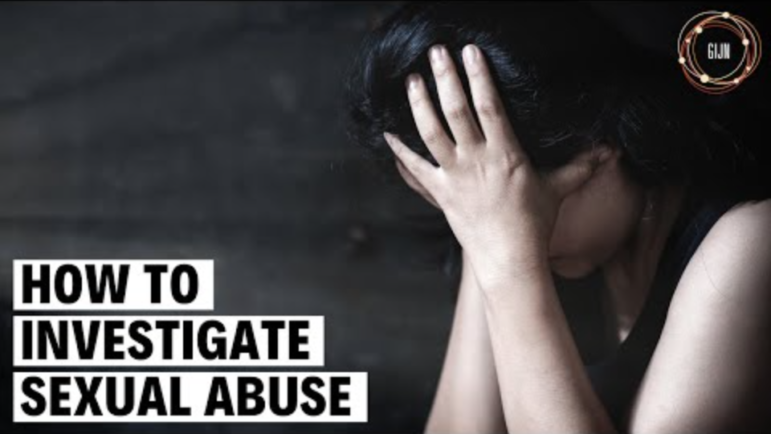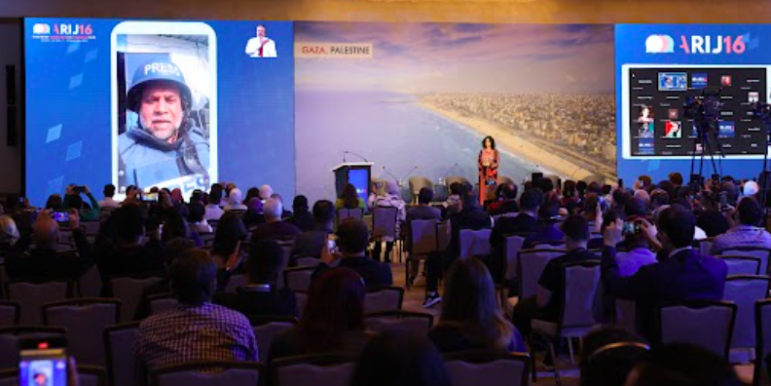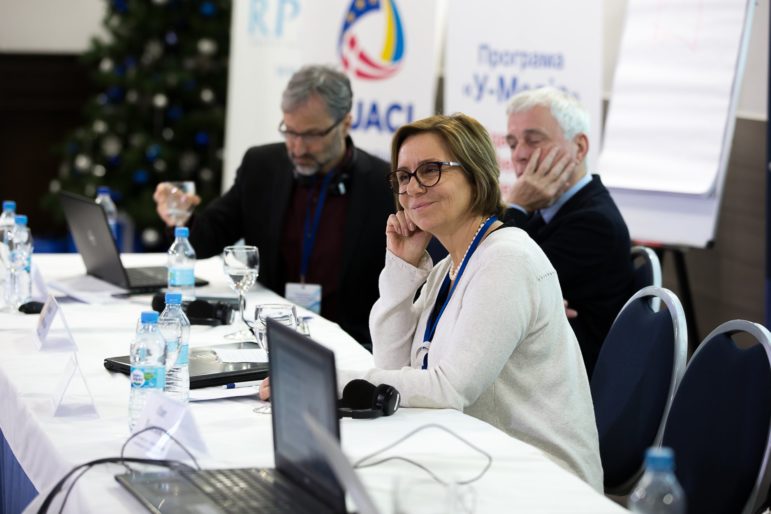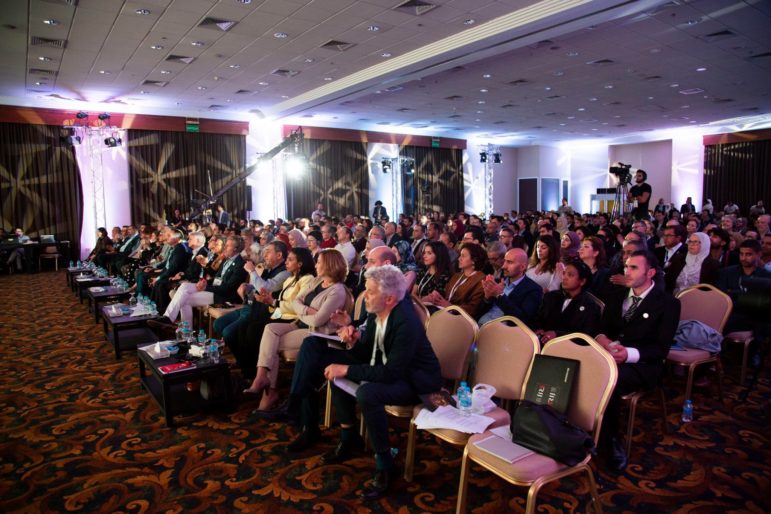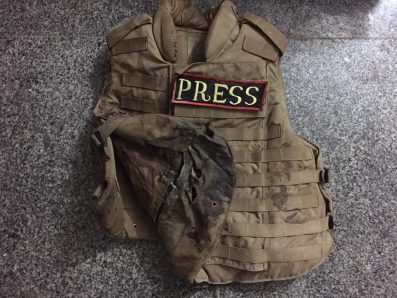

Looking for a Suicidal Job? Try Iraqi War Reporter
 As soldiers ducked for cover from flying bullets, south of Mosul, the Iraqi Alsumaria TV war photographer, Ali Resan, stayed upright, looking for a good angle to film the heated battle. With no armor, no helmet, and right in the line of fire, an ISIS sniper killed him seconds later.
As soldiers ducked for cover from flying bullets, south of Mosul, the Iraqi Alsumaria TV war photographer, Ali Resan, stayed upright, looking for a good angle to film the heated battle. With no armor, no helmet, and right in the line of fire, an ISIS sniper killed him seconds later.
It might have ended differently if Resan had been wearing a flak jacket because the bullet hit him in the chest, according to his fellow war correspondent Ali Al Musawi, who thinks Resan could have made it since the vest would have covered the heart and abdomen just above the diaphragm.
War correspondent Ali Jabar disagrees with Al Musawi and thinks wearing the vest or not is all the same. Either way, a war correspondent is exposed to be killed at any minute because most of the armored vests they get through their channels are cheap, badly-made, and easily penetrable, compared to those worn by their peers in international media organizations.
Jabar refers to his own vest which he got from the broadcast channel he works for; it had a hole in it and Jabar says he does not know the fate of the person who wore it before him. He knows it will offer him no protection and will be no more than an extra weight to carry.
The night before Jabar was due to cover the battles in Mosul, end of October 2016, Jabar called this writer and said he decided to leave his vest at home and depend solely on “divine intervention” to save him. One of Jabar’s peers said the channel they worked for did not train Jabar on the importance of wearing a protective vest nor did it provide him with a vest he trusted to protect his life.
Divine intervention appears to be the only thing protecting journalists in Iraq these days. Most of them are amateur reporters shoved by their media institutions to the front lines between the Iraqi armed forces and ISIS without the minimum of training on how to deal with risks, let alone with reliable protective vests.
And when they do get killed or badly injured, neither their channels, nor the Iraqi Journalists Syndicate or other organizations meant to protect journalists, move a muscle to react — even though protecting journalists is at the very essence of their duties.
According to figures from the Iraqi Journalists Syndicate and the Journalist Freedoms Observatory, 13 journalists have been killed and 44 were injured from the time ISIS took over Mosul (June 10, 2014) to the date of publishing this report. By comparison, none of the 500 foreign and Arab journalists who arrived in Iraq since the summer of 2014 and until the date of this report, have been killed. This is because of the plans laid for their work, their superior training, and their skills in safety and security in conflict zones.
The manager of Alsumaria channel Amar Talal admits that the vest Ali Resan wore was heavy and that Ali took it off minutes before the sniper took him out because Resan felt suffocated in it. Talal insists that Alsumaria channel’s war crew are equipped with the “most advanced vests and helmets,” as his channel is keen on the safety of its war correspondents. He said the channel keeps on top of their movements at all times.
But despite what Talal says, all of Alsumaria’s live and recorded coverage, from the front lines in Mosul to date, show its war correspondent Mustafa Latif reporting without a vest. Latif is also seen replacing the helmet with a khaki cap. This reveals that the channel does not follow procedures to ensure that its correspondent wears the helmet and vest to preserve his life.
Latif justified not wearing them by saying that the vest and helmet are “heavy and annoying” and that they restrict the movement of journalists and camera crew in the thick of a battle.
Latif miraculously survived death while his camera man lost three fingers when ISIS ambushed them in Hay Al Karama, a Mosul suburb where heated battles still continue between the Iraqi armed forces and ISIS.
And Mustafa Latif reappeared on screen immediately after this incident, still with no vest or helmet.
Ali Jawad, a correspondent for the state-run Al Iraqiya channel, remembers that “fateful moment” when he survived death by the skin of his teeth during the battles of Salahuddin in late 2014. Had the ISIS sniper raised his muzzle only a few centimeters up, the bullet would have gone through protective vest and killed Jawad instantly.
Jawad already knew that the vest he wore contained no metal plates meant to protect from bullets and shrapnel and that the fibers in his vest alone could not save him. This is compared to vests that foreign media provide to their war correspondents, each for a cost between $700 to $1,200.
The vest Jawad wore was no different than the ones his four peers had. They decided to run an experiment with the aid of this writer and the Journalist Freedoms Observatory. Each of the vests were fired at from 50 meters with a pistol. The bullet penetrated each of the four vests. A fifth one withstood the bullet; that Iraqi journalist worked for an international news agency.
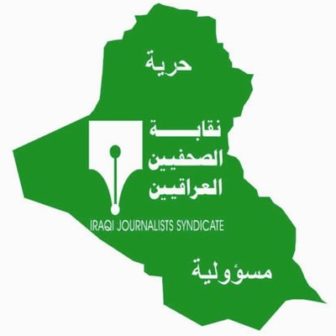 The problem begins with hiring policies. Most Iraqi media institutions, private and state-run, attract young eager reporters looking for work. They wedge them into the role of war correspondents without the proper skills or safety and security training needed in conflict zones. That, in addition to not providing the proper (genuine) bullet proof helmets and vests, not even maps to help them understand the typography of the areas they will work in. The Iraqi Journalists Syndicate, and other unions and institutions meant to protect journalists, all fail to do so amid the ongoing conflict in Iraq.
The problem begins with hiring policies. Most Iraqi media institutions, private and state-run, attract young eager reporters looking for work. They wedge them into the role of war correspondents without the proper skills or safety and security training needed in conflict zones. That, in addition to not providing the proper (genuine) bullet proof helmets and vests, not even maps to help them understand the typography of the areas they will work in. The Iraqi Journalists Syndicate, and other unions and institutions meant to protect journalists, all fail to do so amid the ongoing conflict in Iraq.
When an Iraqi reporter was embedded with the U.S. military before it withdrew from Iraq in 2011, he or she received instructions and guidelines by U.S. officers before their mission began. These instructions stated the importance of them not taking risks or risking their lives in the event of battle. They would be given instructions by an officer to move to a designated safe zone in the event of a fire exchange. But in the war against ISIS, there are no signed agreements or arrangements between the armed forces and their embedded correspondents. A military source who escorts Iraqi war correspondents said correspondents receive no instructions ahead of time.
Joel Whittaker, trainer for the London-based International News Safety Institute, told this reporter that the best practice for the organizations he represents can vary as there is no definitive guide. “But professionals in the security industry,” he explained, “would expect that every person about to deploy to a hostile environment — the journalist, fixer, driver, cameraman — are all accounted for and treated the same. That is in relation to insurance, medical care and Personal Protective Equipment.” He said that training for work in hostile environment is a requirement by insurers and media companies; they may not insure or employ a person without it. “In Iraq,” he continued, “the U.S. military insured all media when they were on base and embedded with U.S. troops. The UK military did a similar thing.”
This journalist conducted a survey in cooperation with the Journalist Freedoms Observatory in which 20 war correspondents were documented to have been shoved by their stations into the whirl of war coverage against ISIS whom have received no training of war reporting. None of the 20 correspondents had work contracts, instead they had assignment orders. This contradicts Article 13 of the Law on the protection of journalists for 2011 which states that “local and foreign media entities working in the Republic of Iraq must commit to sign contracts with journalists working for them according to a form set by the Syndicate or through its branch in the region. A copy of the contract is to be submitted to the Syndicate.”
In the Line of Fire
Iraq has 54 satellite channels, some belonging to political parties, business tycoons, armed factions, clergy, and one state-run network. Most are stationed in Iraq while up to 15% broadcast from abroad.
The head of the Iraqi Journalists’ Syndicate and the Federation of Arab Journalists, Muaid Al Lami, said the syndicate had just started “working on a unified format for contracts to be distributed to media institutions.” Al Lami’s statement comes more than five years after the expiry of the Law to protect journalists – the one that obligates media entities to commit to sign contracts with journalists and submit copies of contracts to the syndicate.
Al Lami held Iraqi media entities responsible for not offering its journalists contracts and said it is those entities who “did not commit” to signing contracts.
Although Al Lami stressed that there were tens of signed contracts at the Syndicate, this writer, despite repeated requests, was unable to see a single contract saved with the Syndicate. The Syndicate justified its dismissal by “lack of free time” or because the head of the Syndicate was traveling abroad.
An official at the Syndicate who requested anonymity told this reporter that the Syndicate only has copies of two contracts. The source declined to share those two contracts as it contradicted Al Lami’s official statement.
A senior official at one of the Iraqi satellite channels, who requested not to be named, confirmed that most journalists do not have contracts. Instead, they have administrative recruitment orders by the media entity. “I am in the position of deputy manager at the channel where I work,” he added. “I am the next in charge after the general director and despite this I do not have a contract.”
Lacking the Basics
The Chair of Iraq’ Press Freedom Advocacy Association, Mustafa Nasir, accused the Iraqi media channels of not training its journalists on how to cover conflict. Nasir based his accusation on a study conducted by his association.
Nasir said that local media channels offer no support to journalists. Often a war correspondent doesn’t understand his or her assurances when covering military operations. Also there are some channels that pump its reporters with religious and ethnic rhetoric and send them to battle with no assurances, incentives, or means to protect themselves such as protective vests and helmets.
War correspondent Habib Mohammed, 32, said that he was first unaware of the “unfair” recruitment conditions that one Iraqi satellite channel he worked for tried to impose on him before he decided to do combat coverage. Mohammed turned the job down when there were no guarantees to protect his life.
The main condition the channel (which Mohammed preferred not to mention) asked him to sign in his contract was that he agreed to cover live combat immediately after he was hired and with no prior training to qualify him as a war correspondent. At the same time the channel asked Mohammed to sign a written statement where he practically waives all legal rights and financial assurances regarding his job as a war correspondent. This writer has a copy of the statement Mohammed was asked to sign.
The statement said that Mohammed is to work as a permanent staff member with no contract and that the channel “will not be responsible in the event that he is exposed to danger while covering combat; and that the channel is not to be held accountable legally or to a tribal code or court of law to him, members of his family or relatives. The administration is also not obligated to pay financial compensation if any harm becomes of him.”
 Ahmad Shihab, director of Hona Baghdad channel, which Habib Mohammed worked for, said that the channel has one war correspondent who participated in one training in Baghdad about on the job safety. Shihab said the correspondent had no previous skills but said he learned a little on the training.
Ahmad Shihab, director of Hona Baghdad channel, which Habib Mohammed worked for, said that the channel has one war correspondent who participated in one training in Baghdad about on the job safety. Shihab said the correspondent had no previous skills but said he learned a little on the training.
As for Mohammed, although he covered western Iraq throughout the second half of 2014, he quit his job and left Iraq to Europe in early 2015.
Extortion
 The director of Iraq’s Journalist Freedoms Observatory, Ziyad Al Ajili, describes the hiring policy used with journalists as “masked extortion” because there are no unified contract formats endorsed by the journalists Syndicate and no legal frameworks for hiring. At the same time existing hiring procedures are a grave violation of journalistic codes which state that war correspondents must be prepared before sending them off to conflict zones.
The director of Iraq’s Journalist Freedoms Observatory, Ziyad Al Ajili, describes the hiring policy used with journalists as “masked extortion” because there are no unified contract formats endorsed by the journalists Syndicate and no legal frameworks for hiring. At the same time existing hiring procedures are a grave violation of journalistic codes which state that war correspondents must be prepared before sending them off to conflict zones.
Journalists in Iraq are not hired according to agreed-upon conditions in contracts. Some undergo tests to measure their skills and some don’t. Al Hurra Iraq is one of the Iraqi channels that care the most for its reporters. Yet its bureau chief in Baghdad, Falah Al Thahabi, did not fill out the survey form we sent him, despite the writer’s repeated calls.
This journalist sent survey forms to 14 Iraqi channels and networks: Al Iraqyia, Alforat, Al Ghadeer, Al Masar, Al Mada, Alsumaria, Al Sharqiya, Rudaw, Hona Baghdad, NRT, Alahad, Asia, Al Hurra Iraq, and Afaq.
Ten of the channels and networks replied while managers of four declined to take our calls or gave the excuse that they were unable to respond because they were traveling abroad.
The survey showed that six of the channels and networks that agreed to fill out our survey form did not send copies to the Syndicate. Two satellite channels said they shared copies with the Syndicate but refused to give us access to those contracts for “special” reasons. We were also unable to look at the contracts of one network because it was registered at the journalists syndicate in Iraqi Kurdistan. The state-run Al Iraqiya did not send copies of its contracts to the Syndicate.
The survey distributed to 15 journalists in several networks showed that nine had no contracts with their employers. Six said they had contracts but that the management did not give them copies, meaning those contracts stayed solely with the administration.
Of the 15 journalists surveyed, 12 received no training on reporting in combat, despite being part of combat crews covering the battles between Iraqi armed forces and ISIS. Only three received training on reporting in conflict zones.
The chair of the National Union of Iraqi Journalists, Adnan Hussein, whose group opposes the policies of the Syndicate, stressed that most local Iraqi institutions refuse to sign journalists to secure contracts. Hussein cited the sudden mass layoff of tens of journalists in the past based on sudden decisions by the networks and with no sufficient prior notice to journalists.
Hussein believes that not applying legal measures when hiring journalists motivates the journalists to accept jobs as war correspondents. Hussein admitted that he is unaware of any mapping of the number of war correspondents and that he has no copies of contracts networks should offer. His union did not offer any suggested model contracts media institutions should use.
 The National Union of Iraqi Journalists offered 15 workshops during the last 3 years in a variety of skills across Iraq. They are also in the process of conducting additional workshops in Baghdad and Erbil during October and November. But the union has not conducted any workshop specifically for war correspondents.
The National Union of Iraqi Journalists offered 15 workshops during the last 3 years in a variety of skills across Iraq. They are also in the process of conducting additional workshops in Baghdad and Erbil during October and November. But the union has not conducted any workshop specifically for war correspondents.
Reporters with No Armor
Mohammed Aboud, former news director at Alforat, a private satellite channel, said the channel has 12 war correspondents disbursed in several battlefields across Iraq. But the channel only has four protective vests, two of which were bought for $90 per vest due to financial constraints. He cited one example by saying the channel used to pay $85 per military report, then cut down this fee to $50, and now the channel pays $35 per report from the war fronts.
The director of Iraq’s Journalist Freedoms Observatory, Ziyad Al Ajili, believes that the actual experience of covering battles in Iraq has proved how vast the gap is between Iraqi media and their foreign and Arab counterparts when it comes to the protection of war correspondents.
But, Ahmad Al Sahin, director of local news channel Al Etejah, said it’s not only the responsibility of the channel. The most important part, he said, concerns reporters themselves because they often dismiss instructions or protocols by entering into dangerous areas with soldiers on the front lines because they want to obtain moving footage.
Al Sahin says this is what happened in the operations to liberate Tikrit in 2015 when the channel’s reporters entered the city with advancing troops. This resulted in the death of the channel’s driver, killed by a sniper while driving the channel’s live broadcast truck.
Muhanad Al Iqabi, media spokesperson for Iraq’s Populist Mobilization Force, agreed. He said many reporters “get carried away when covering battles and ignore to follow plans put for them ahead of time. Many reporters enter dangerous places at the wrong timing.”
Ali Al Rimahi, a cameraman for Alforat TV injured in the battles for Tikrit, said: “The reason this happened to him was his lack of any experience in covering battles, except for what he learned on the job. The channel did not enroll him in any workshop for war camera crew.”
Amjad Taleh, in charge of reporters at the state funded Al Iraqiya, agreed with AlRimahi. He stressed that war correspondents now on the battlefields “have not undergone any training about safety on the job.”
Personal Experience
Independent war correspondent Yunus Al Bayati says that most beginner reporters who accompanied him when covering battles in eastern Iraq did not know how to conduct themselves while covering battle. Many of them advanced with the troops on the front lines with no regard for safety procedures. Some walked on the sides of roads that ISIS tended to plant with explosives and ignored the parallel routs and river streams which are usually safer.
Al Bayati recalled how he once persuaded his peers to withdraw 200 meters away from a location just freed by the Iraqi army: “I told them this area will be hit and indeed a mortar landed in the same spot minutes after they moved back. Many soldiers were killed and injured in the blast.”
Al Bayati’s former experience as a former officer in the Iraqi army helped in improving his war coverage. These skills, he said, were never acquired from the channels he worked for.
 Ra’ad Al Mash’hadani, a reporter for the Al Rasheed satellite channel, says he does not know what kind of luck he had to survive “three near death experiences” in one day when he was on his way to cover the liberation of Takrit in 2015.
Ra’ad Al Mash’hadani, a reporter for the Al Rasheed satellite channel, says he does not know what kind of luck he had to survive “three near death experiences” in one day when he was on his way to cover the liberation of Takrit in 2015.
Meanwhile, AlDiyar reporter Nada Al Marsomi suffers a sense of helplessness and fear every time she takes a trip to the front lines.
Al Marsomi only wore a protective helmet and vest once out of the tens of times she covered the war fronts. The channel she works for provided her with nothing, “not even the liaison with relevant contacts regarding her participation in the war coverage,” she explained. “It was I who took care of everything.”
The channel told Al Marsomi that she is responsible for her own protection and that if harmed while on duty, the channel held no responsibility for her.
Conflicting Positions and Data
Iraqi Journalists’ Syndicate head Muaid Al Lami said his group has trained 300 journalists on reporting in combat. Al Lami refused to share a list of trainees with this reporter, who wanted to communicate with them. He also refused to say where the trainings were held.
The chair of the National Union of Iraqi Journalists, Adnan Hussein, questioned Al Lami’s statement. Hussein is also a manager in the Al Mada media network which own a satellite channel, radio station, news agency, daily newspaper, and two publishing houses. Hussein stressed that the figures Al Lami gave are not true because Al Mada is one of the biggest media houses in the country and it has not had a single war correspondent trained by the Syndicate.
“It is not our duty to provide journalists with protective vests and helmets,” countered Al Lami. “Our role is only to guide them. Security forces take the responsibility to protect the safety of journalists. Just as they protect the soldier and the officer they must also protect the journalist.”
Al Lami also tried to justify why media channels fail to provide their journalists with vests and helmets. “The economic conditions the country is going through prohibits them from buying vests and helmets for their reporters,” he suggested. And what about investigating the cause of journalists’ death or injury while on duty, and finding out if they were wearing their protective gear? he was asked. That, Al Lami responded, “is also not the job of the Syndicate.”
Correction: This story originally stated that no Western correspondent in Iraq had suffered a casualty since June 2014. That is not correct; there are multiple reports of injuries. The story has been changed to report that since that time no Western correspondent in Iraq has been killed.
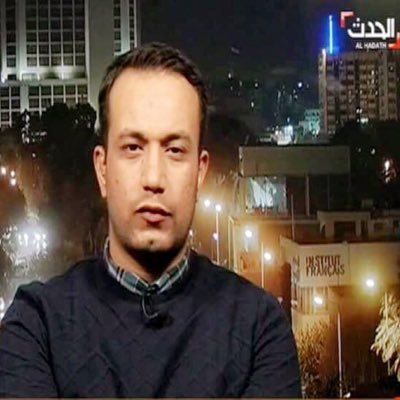 This investigation was completed with support from Arab Reporters for Investigative Journalism (ARIJ). It was first posted on ARIJ’s website and is reproduced here with permission.
This investigation was completed with support from Arab Reporters for Investigative Journalism (ARIJ). It was first posted on ARIJ’s website and is reproduced here with permission.
Mustafa Sa’adoun is a journalist at Al-Monitor, and founder and director of the Iraqi Observatory for Human Rights.

